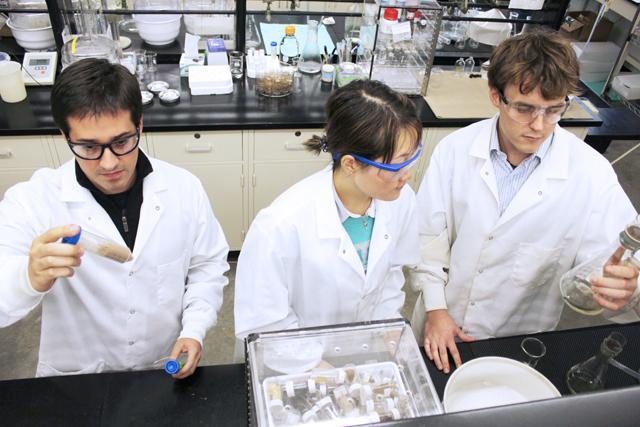The College of Natural Resources has received a $4 million grant from the U.S . Department of Agriculture to further their research in biofuels.
The College of Natural Resources is a member of the Southeast Partnership for Integrated Biomass Supply Systems and will be using the grant, along with several other universities, to conduct research and field work on deriving biofuels in a cost-effective and environmentally-friendly manner. Department head and professor in forest biomaterials Steve Kelley is serving as the primary investigator for N.C . State’s use of the grant.
The grant will be used to fund research on how to create biofuels from trees, and harvesting residues with the goal of eliminating the need to use corn to generate biofuels.
Although use of corn-based biofuels results in a slight decrease in greenhouse gas emissions, Kelley said there are negative aspects of using a food item as a fuel source.
“Corn for ethanol is grown on agricultural quality land, and if we want to make a fuel out of our corn, at some point that will impact the price of food. But we have to do better, in particular where we don’t compete with food,” Kelley said.
Dan Robison, co-investigator on the grant and associate dean for research in the College of Natural Resources, said the college has consistently been a worldwide leader in sustainable forestry and the production of industrial utilization of wood. He said the grant is a chance for N.C . State to continue its leadership in the area of biofuels research, and also to power forward and make a bigger impact on a regional and national basis.
“What the USDA recognized in our proposal was not only a series of good ideas that made sense, but a series of educators that had excellent capabilities to plan this work and carry it out successfully,” Robison said.
Overall, researchers on the grant were not concerned with deforestation, given that in these systems, harvested forests are regenerated.
Also, given that the majority of North Carolina’s land is forest, providing ample opportunity to make a good start on research, researchers were not bothered that tree growth is a slower process than some agricultural biomass.
The grant has implications far beyond North Carolina, according to researchers.
Hasan Jameel, a professor in forest biomaterials, said it has the potential to help national security.
“When we find ways to create biofuel in the United States, we are also creating jobs in the United States. [In addition,] whenever we can make biofuel in the United States, we are decreasing a national security issue because we will not have to rely on foreign countries for our oil,” Jameel said.
However, Kelley said levels of greenhouse gas emissions would not see the heaviest impact. The greatest issues alleviated by utilizing biofuels produced for transportation in the United States, he said, are imported oil and national security.
While several N.C. State professors have been chosen to conduct the research, students at the graduate and undergraduate levels also have opportunities.
“In ever aspect of this project, there will be students involved,” Robison said. “Primarily graduate students will be working on the detailed science, engineering and the public outreach, but there will also be opportunities for undergraduates to conduct research and for fieldwork public outreach.”








